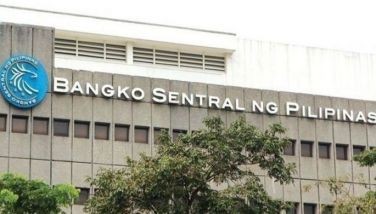Study says proposed oil exchange will have little effect on localpetroleum prices
The proposed National Oil Exchange is a predictable call for government intervention in a free market system.
This statement was made by Luningning Achacoso in a paper written for the Washington Sycip Policy Center (WSPC) of the Asian Institute of Management (AIM).
The WSPC is a public policy think-tank of AIM. It has been formally recognized as a private sector support group for the Flagship committee of the Estrada administration.
Achacoso admits that one of the drawbacks of a free market is that it brings a certain degree of price volatility to the system.
"But in this case (high crude oil prices), where the primary source of the price volatility is the Organization of Petroleum Exporting Countries (OPEC) cartel, the oil exchange would merely be a stopgap measure that would have little or no effect on the acquisition price," she added.
The WSPC likewise expressed fears that the oil exchange could actually negate the benefits of deregulation already being experienced. It noted that the competitive environment brought about by the deregulation resulted in more efficient operations by the oil companies aside from increased security by the consuming public of sufficient supply for individual, commercial or industrial requirements.
The deregulation of the country's oil industry resulted in the entry of many new players resulting in a more stable market supply while prices of petroleum products have remained at competitively low prices compared to the rest of Asia.
Prior to the deregulation, there were only three dominant players, which are Petron Corp., Pilipinas Shell Petroleum Corp., and Caltex Philippines Inc. Today, there are over 40 players in the industry with the new players accounting for approximately 10 percent of the market.
Petron chairman and chief executive officer Jose Syjuco Jr. said in an interview that there are five factors which dictate the pricing of their products. These are: price of imported crude oil mainly coming from the Middle East; foreign exchange rate; transportation cost (overseas and domestic); rate of return on investments; and competition by new players.
The major players have more often than not admitted that part of their considerations when pricing their products, is the price of the new players. In fact, most of the new players like the service stations of Unioil and Total Petroleum Philippines Corp. (TPPC) always price their petroleum products a few centavos lower than the three majors.
"The oil exchange is not the antidote to the crude oil cartel or high prices of petroleum products,' Achacoso said.
Earlier, the Office of the President, the finance and energy department had rejected House Bill (HB) 8710 otherwise known as National Oil Exchange Corp. (NOEC) bill.
Energy Secretary Mario Tiaoqui said HB 8710 goes against the deregulated environment already in place.
Under the present environment, new investments in the industry amounted to P10-billion with another P35 billion earmarked for investments in import terminals, storage, distribution facilities and retail outlets.
"Barely two years after deregulation, new players have captured 10 percent of the total domestic market share," Tiaoqui said.
HB 8710, authored by Rep. Enrique Garcia, proposes that the oil exchange will take over all existing storage, distribution and terminal facilities nationwide. In short, creating an oligopoly in the oil industry.
"This will destroy government's determined efforts to attract private investors who can generate jobs to alleviate poverty," the energy secretary said.
TPPC president Jean Jacques Jung said the proposed oil exchange "matches the notoriety of OPEC."
Jung said the formation of the oil exchange overlooks the reality of the OPEC supply cubs which is the principal reason for high crude oil prices and subsequent higher petroleum products like a gasoline.
Pilipinas Shell Petroleum Corp. (Pilipinas Shell) president Oscar Reyes said that under a regulated environment, the prices of refined oil products would be higher than under a deregulated and competitive one.
Under a regulated environment similar to what the bill proposes, the price of diesel oil would be 54.7 percent higher than the present deregulated situation.
Earlier, the DOE said that establishing a NOEC including the physical facilities and inventory would cost government P17-billion.
"This is not feasible considering the current problems in budget deficit," the department said.
The proposed NOEC likewise does not guarantee lower prices of petroleum prices. The two main sources of crude oil will be the OPEC and non-OPEC countries. OPEC supplies 41 percent while non-OPEC nations like Mexico and Norway account for 59 percent. However, most non-OPEC countries find it profitable for their respective economies to follow OPEC price structures.
- Latest
- Trending




























